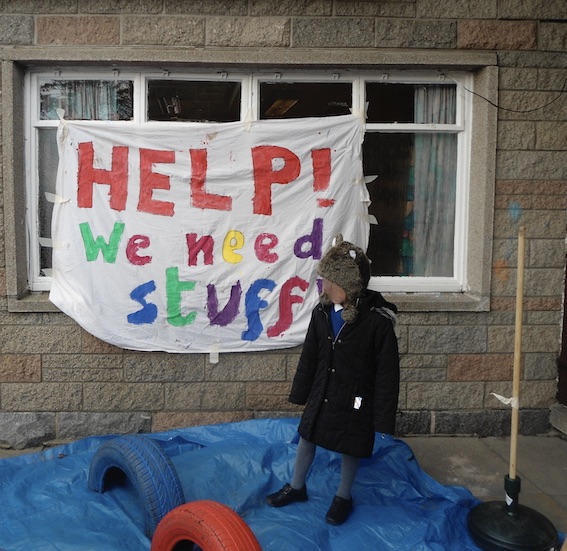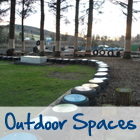This post has been written to support the GRANTS page. It is written in good faith but much of it is down to personal experience and opinion. For expert advice then seek a person with professional fundraising expertise to assist you. A useful book to buy is The Fundraising School Handbook.

1.Plan well in advance. Last minute deadlines can often gain funding but you may not have thought through all the implications.
2. Read the application form carefully and follow the instructions tightly. If in doubt, contact the organisation and ask for clarification.
3. Be creative and “cross pollinate” the possibilities. You do not necessarily need an outdoor grant for outdoor improvements. For example, a music grant may be more relevant if you are looking to develop the provision of music play outside.
4. Match funding. You may need to match the level of the grant through other sources of finance such as fund-raising. Read the small print carefully. Some grants recognise alternative approaches. For example, if you are relying on some volunteer time from parents, you may be able to work out how many hours of their involvement you need and the financial cost of this if you had to pay them the living wage. It can add up to a significant amount of match funding.
5. Community links and/or wider benefits are often a key condition of funding. It’s worth brainstorming these in advance. For example, your grounds may be open to the public outwith school hours. There may be a legal right of way or access route through your grounds. It could be that you want to experiment making the space available for out of hours visitors.
6. Sustainability of the project. If you left the organisation, who would continue to oversee the project and this includes beyond the funding time but into the future? Try to avoid being the Lone Ranger… developing school grounds and other outdoor projects requires active buy-in from others too… even if there’s a bit of mentoring needed.
7. Who’s doing the work? Big sources of income need lots of time set aside to manage the funding and to ensure the money is spent in accordance with the contract. Often this adds up to as much as a day per fortnight through the whole process.
8. Next, think about who is overseeing the practical work. You may need a site-based person – someone who can do this on your behalf with school grounds development experience and working knowledge of construction processes for substantial changes.
9. How are your children and other stakeholders involved? is this really a shared vision and project? How are you evidencing their active involvement? In what ways is it enhancing their learning experiences? This can be useful to do in advance of applying for a fund to evidence the need and interest of your stakeholders. There are some lovely ways of consulting and seeking feedback from all your stakeholders, such as this activity. Young children or those with a disability can easily be involved through a range of approaches.
10. Often small pots of local funding for specific purposes is easier to apply for than a big award that is high commitment. It’s also useful for trialling bigger developments and learning from mistakes.
11. Enter competitions – especially those which are local and involve very little effort. When you win something, however small, often creates a feel-good factor in the school or organisation.
12. Partner up! Many funds are only available to registered charities rather than schools. If you have a great idea then look for a local charity that may be interested in working with your school. Partnerships can be beneficial and have wider impact beyond one school.
What type of organisation are you?
Different grants are relevant to different groups, e.g.
- Voluntary/community organisations
- Registered charities
- Constituted groups/clubs
- Not-for-profit companies/ CIC’s
- Statutory bodies (including town, parish and community councils)
- Schools, including nurseries
You will need to check which grants apply to you and which do not. Sometimes it is easier for funding to be obtained if the Parent Teacher Association applies or another group associated with a school. Likewise schools or nurseries that have charitable status often have access to a wider range of funding opportunities. However, this has to be balanced against the time taken to set up and run a charity, which is a business and requires active management as well as reporting to your country’s charity commission.




















I have a day nursery and would like to take advantage of funds
Have a look at the grants page and click on the links to any funds that may be relevant to you. I don’t offer any specific funds – it’s just a signpost to organisations that do. Good luck!
I am a parent wanting to apply for a grant to help make my children’s outdoor play area more safe and accessible.
Which is the best grant to apply for please?
Hello Kate – thanks for your question. When you talk about your children’s outdoor play area, it’s useful to know whether this is part of a public space, such as a park OR a nursery which could be private, voluntary or independent or part of a Local Authority OR a community owned space. Each set up affects what grants are available and what may not be. Usually Awards for All or the Tesco community grant are fairly straightforward to apply for – but read the eligibility criteria. Sorry not to be more specific but good luck in your grant searching.